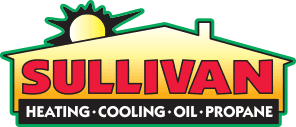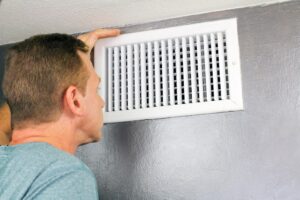You think your home is a safe haven that protects you from outdoor pollutants. However, what many homeowners don’t realize is that the air in your house can actually contain more pollutants than the air outdoors. Consider pollutants such as tobacco smoke and pet dander that may be inside of your Bethlehem, Pennsylvania, home, and learn about ways to get rid of them.
Excess Moisture
Homeowners may not recognize the dangers that come from too much moisture in the house. Moisture not only poses a risk to your home, but it can also affect your health by worsening the symptoms of allergies and asthma. Excess moisture in the home can contribute to high humidity levels that can make you feel uncomfortable in your home.
High moisture levels can encourage dust mites and other forms of biological growth. Excess moisture can result from leaking plumbing fixtures, gaps in home siding, or an old roof. If you identify any signs of excess moisture in your home, you will want a home services professional to evaluate the extent of the problem. A contractor or plumber can identify sources of the problem and take the necessary steps to combat the issues contributing to excess moisture. Solutions may include installing a device to remove humidity from the air or improving ventilation in your house.
Tobacco Smoke
The United States Environmental Protection Agency (EPA) has placed tobacco smoke in an indoor pollution category of its own because of its ability to significantly impact the air in your home. You don’t necessarily have to have a smoker living in your house to experience the consequences.
If a previous resident or homeowner smoked in the house you occupy, remnants of tobacco smoke can remain in the air, ductwork and fan assemblies. Someone who is sensitive to smoke may experience symptoms related to tobacco smoke exposure. If you can still smell tobacco smoke after moving into a home occupied by a previous homeowner who used tobacco products, schedule an indoor air quality assessment with an HVAC professional.
Pet Dander
Millions of Americans have at least one pet in their household. However, you can’t always easily see the tiny particles of pet dander that a cat, dog or even a bird leaves behind. These small particles can enter your HVAC unit and contribute to allergy or asthma symptoms. If you live in a household with pets, changing your HVAC system’s air filter and cleaning your home more frequently can help reduce levels of pet dander.
Additionally, scheduling regular HVAC system maintenance can help ensure that your unit is clean and working properly.
Household Products
Many of the household products that you use every day may also be affecting your indoor air quality. Volatile organic compounds (VOCs) contained in products such as oven cleaners, laundry detergent powders, cleaning chemicals, paint thinners, pesticides, and arts and crafts supplies can emit harmful toxic substances into your house. Without proper ventilation, these pollutants can result in symptoms of respiratory difficulties and skin irritations.
Odors From Fuel-Based Equipment
Odors from fuel-based equipment can enter your home in several ways. For example, allowing a vehicle to idle in the garage can direct fuel fumes into your home. Don’t forget about the fuel sources for equipment used to heat your home or prepare meals. Using appliances or equipment that does not properly ventilate fumes to the outdoors can cause dangerous levels of carbon monoxide to build up inside your home.
Removing Common Household Pollutants
To reduce the presence of household pollutants in your indoor air, you need to first identify the sources of the problem. Correcting the problem will depend on what type of pollutants you’re dealing with. You can improve your indoor quality by scheduling routine HVAC system maintenance and changing your system’s air filters more frequently. For complex indoor air quality problems, you may need air purifiers or a whole-house air cleaner.
You deserve to have healthy air in your home. Take control of your indoor air quality today by contacting the indoor air quality experts at Sullivan Oil & Propane at (610) 810-3992. Our products and practical solutions can help you better manage the air quality in your home.
Image provided by Shutterstock



